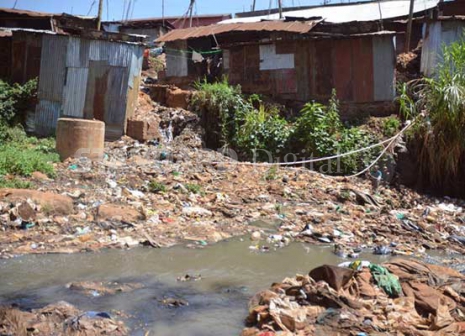×
The Standard e-Paper
Kenya’s Boldest Voice

It will be a tricky affair for some of the residents in Kibera who still depend on plastic bags to relieve themselves. The bags and their content are famously known as flying toilets.
As the Government effects the ban on the use of plastic bags, these residents will have to seek alternative means due to a lack of adequate sanitation services in the informal settlement.